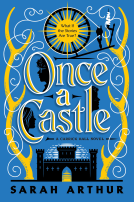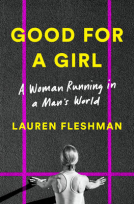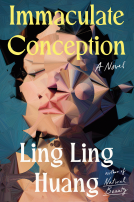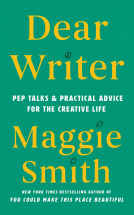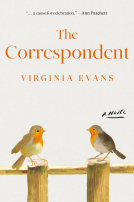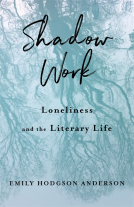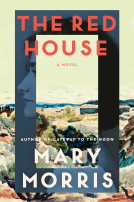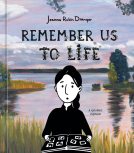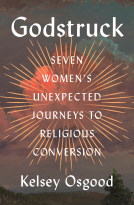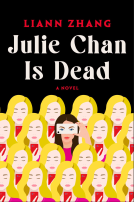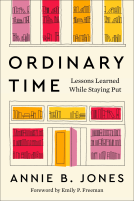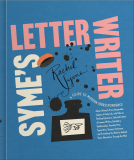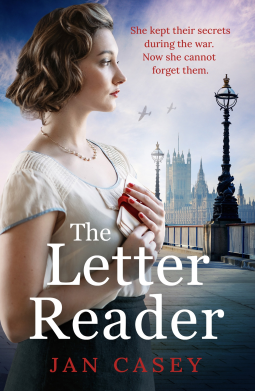
The Letter Reader
by Jan Casey
This title was previously available on NetGalley and is now archived.
Send NetGalley books directly to your Kindle or Kindle app
1
To read on a Kindle or Kindle app, please add kindle@netgalley.com as an approved email address to receive files in your Amazon account. Click here for step-by-step instructions.
2
Also find your Kindle email address within your Amazon account, and enter it here.
Pub Date May 11 2023 | Archive Date May 18 2023
Aria & Aries | Aria
Talking about this book? Use #TheLetterReader #NetGalley. More hashtag tips!
Description
She read their secrets during the war. Now she cannot forget them...
1941. London. Keen to do her bit in the war, Connie Allinson joins the WRNS and is posted as a letter censor. Her task: to read and alter correspondence to ensure no sensitive information crosses enemy lines. At first, she is not sure she's up to it, but is soon drawn in by the letters she reads, and their secrets...
1967. Doncaster. Bored of her domestic life, Connie desperately wants a job, but her controlling husband Arthur won't hear of it. Looking for an escape, and plagued by memories of letters she read during the war, she makes a bid for freedom and starts secretly tracking down their authors. Will uncovering their past give Connie the key to her present? And will she be able to find them all before Arthur discovers what she is keeping from him?
A page-turning and evocative historical timeslip, for fans of Mandy Robothom and Melanie Hudson.
Available Editions
| EDITION | Ebook |
| ISBN | 9781803283821 |
| PRICE | £3.99 (GBP) |
| PAGES | 368 |
Available on NetGalley
Featured Reviews
 Elaine S, Reviewer
Elaine S, Reviewer
Wow, what a read! Read in one day, was desperate to see how it went for Connie. I recommend this, you won’t be disappointed.
In dual timeline, I felt it flitted effortlessly between them as we read about Connie in 1941 when she joins the WRNS and is posted to HMS Holborn as a letter censor which she finds really interesting and dwells on some details in them an carries them in her thoughts. She has just started her married life to Arthur, who it has to be said is a bit of a control freak. I’d have divorced him after the first couple of chapters.
In 1967 Connie is living in Doncaster carrying out her wifely duties to Arthur’s behest , leaving little time for herself. What will it take for her to change things?
After a disagreement Arthur gives permission for Connie to visit her brother, this opens up an opportunity to tract down some of the letter writers from the war and to find out what became of them.
A very enlightening book of how women were often expected to cater to the whims of their husbands in the 1940-1960 era.
Lots of information about the role’s women played during WWII.
A very interesting and entertaining read. Five stars
 Jane W, Reviewer
Jane W, Reviewer
The Letter Reader by Jan Casey is about a woman who upon reaching her fifties finally takes control of her life and her happiness. The author contrasts her heroine’s life as a letter censorer during WWII with the restrictions her husband put on her when the conflict was over. The parts about the how and why of censorship are what drew me to request an ARC of this book as none of the other books I have read about the war years touched on correspondence censorship. Connie’s post war years reveal how hard it was for women to transition back to just being a housewife after having contributed so much. I voluntarily reviewed an ARC of this book from NetGalley. Highly recommend.
 Abby S, Reviewer
Abby S, Reviewer
So enlightening so well written. A look at women’s roles during the war and the change when their husbands came home.I was totally involved with these women who had the role of letter readers during the war and finding out what their lives were like when their husbands came home.I was totally involved with this story really enjoyed.#netgalley #ariarias
 Alicia C, Reviewer
Alicia C, Reviewer
This was my first book by Jan Casey and I really enjoyed it! I particularly love the 1941 storyline of Connie Allinson's work during the war as a letter censor in the WRN's. I've always been interested in historical fiction around the time of World War II and contributions of women during this time period. The Letter Reader didn't fail to intrigue me in that sense and letter censorship was something I haven't read about before, so I found it very fascinating.
Where it fell a bit short for me was the 1967 storyline. It infuriated me to see the way Connie was treated by her husband, Arthur, and it made me grateful for my freedom as a woman today. It was very well written though to stir up that emotional response, but it became a bit repetitive and therefore, a bit boring to read about the same issues over and over. I feel like it started and ended really strong, but the middle dragged a bit for me when it wasn't in the 1941 timeline. It was so worth pushing through though because I really enjoyed how the story was wrapped up in the end.
Thank you to Netgalley and Aria for providing me with an advanced copy of this book in exchange for my honest review.
Thank you to netgalley for this ARC in exchange for my honest review. This was my first book by Jan Casey, and certainly won’t be my last! I was very intrigued by the premise of this book, especially since it dealt with women’s jobs during WWII in England. This story is told from Connie’s POV in the 1940s during WWII and then again in 1967 when she’s living in Doncaster, UK. Parts of the book when Connie works as a letter censor is so interesting. In 1967, immediately there is a vibe change and you can tell Connie is in an unhappy marriage and wants a change. The letters that she censored 20 years ago are resurfacing in her mind, and she wants to know what happened to the people in the letter. Connie’s story is slow at times, but altogether moving and shows how women in a different age have had their own set of troubles and setbacks but ultimately overcome the hardships they’re faced. I loved how the ending leaves you to decide for yourself what happens to Connie! I would recommend this book to lovers of historical fiction and I can’t wait to read more of Jan Casey.
I received an advanced digital copy of “The Letter Reader”, courtesy of the author and publisher, via Netgalley, for an honest review.
I really enjoyed reading this book. All the stories Connie said about women involved in other aspects of the war effort were so fascinating. When the war ended, a majority of women wanted to keep their jobs and their new-found economic and social independence, but nearly all were laid off, for men who were back from the war and were seeking employment.
Connie wasn’t happy with her situation and his controlling husband, but she did not have the strength to stand up for herself. But when she finally did it, it was so beautiful and empowering.
The ending was peaceful and touching. I would recommend this book to lovers of historical fiction and those interested in women’s rights and empowerment.
 Nicole G, Reviewer
Nicole G, Reviewer
This was a slow read for me, but I enjoyed it. I enjoyed the characters' tie to a part of history I had not heard much about with the postal censorship during WW2. I love the women empowerment at the end also.
Thanks, Netgalley for the chance to preview this story! This historical fiction story is a dual timeline in England during WWII and life after the war in the mid-'60s. Connie was a censor during WWII and her work during that time was interesting. I found the dual timeline interesting with her adjusting to a married, childless, life after WWII as she dealt with a controlling husband and the attitudes of the time as to the role of a woman. It was a fast interesting read for me.
I’ve never really thought about the individuals who had to censor letters during times of conflict or war and the secrets that they must hold tight, knowing the letter writer’s innermost thoughts and personal details which would have been out of context and disjointed. “The Letter Reader” follows the story of Connie Allinson who joins the WRNS to do her bit for the war effort, finding herself tasked with the heavy toll of censoring letters to ensure no wartime secrets or codes were being sent back and forth behind enemy lines. The novel also explores Connie’s relationship with herself and her husband utilizing a dual timeline, during WWII and 1967, to show the lasting effects of the situations they have been placed in, both during the war and after. Connie is faced with a husband who believes a woman’s place is in the home and not in the workforce. Connie’s husband, Arthur, is a rather dull, humdrum man who seems to be stuck in the rut of sameness and routine never considering that his wife might have an opinion of her own. Early on it is apparent that Connie acquiesces to whatever her husband deems appropriate, illustrating that Arthur is stifling any and all of Connie’s personality as she gradually takes on Arthur’s image of the picture perfect wife. Despite this, we see Connie’s strength, hopes, dreams, and how much she enjoys her independence as her personality and individuality strain to be seen and heard. I really enjoyed Connie’s voice and how she worked hard to overcome the situation she found herself in. With well written, relatable, and believable characters, this novel is for anyone who has had their voice silenced, who has been able to come into their own and walk strong out from under oppression, for those who enjoy reading strong female characters, and who enjoy WWII historical fiction. A story that pulls you in from the start, I highly recommend this novel.
Set to release on May 11 as an ebook and in paperback on August 15, you can preorder today. Thank you to @NetGalley and @headofzeus for selecting me to read this advance copy.
#bookstagram #bookstagrammer #wwii #wwiihistoricalfiction #theletterreader #historicalfiction @jancaseyauthor
 Alayne E, Reviewer
Alayne E, Reviewer
Oh wow, I loved this one. I enjoyed her last book immensely and this one was just as good. A dual time line set during the Second World War and 1967. The descriptions of the fashions in the sixties was well researched and I had no idea if women did actually read letters to check for codes and untoward mentions of war happenings in this era but, I found it fascinating. A wonderful story. My thanks to Netgalley and the publishers for giving me the opportunity to read this book in return for an honest review.
 Reviewer 510084
Reviewer 510084
What happens when war ends and the men come home? The Letter Reader, by Jan Casey, gives at least one scenario as the reader looks into the lives of Arthur and Connie. When Arthur is deployed, shortly after they marry, Connie enlists and is trained to be a censor for letters written during the war. While not the most dangerous position available, Connie gets to travel, to get a look into the lives of others, and to uncover some of the letters transmitting codes. She feels valued and somewhat adventurous.
When Arthur returns to civilian life, he wants a peaceful routine with him in charge. He thinks he's making decisions that will make Connie happy, but he never thinks to ask her what she wants. In this dual timeline story, follow Connie as she finds herself trying to be more like the adventurous person she was during the war.
The women in the UK truly stepped into every job that had been done by men before World War II, including many new ones that were created by the war. This story tells of one of those jobs covered by the WRNS, letter censoring. The book has two timelines, the war years and 1967, two vastly different eras for women. Using the main character of Connie, the author highlights how difficult it was for women to fall back into their traditional roles once the war was over. Sometimes Rosie the Riveter didn't want to go back to being Suzy Homemaker. (I thoroughly enjoyed the 1967 chapters set in London since I'm old enough to remember the music and fashion.) This is an honest look at women's issues, some of which remain the same. It is a great book for women to read in appreciation of what previous generations accomplished while inspiring us to reach higher for our daughters.
Many thanks to NetGalley and Aria for providing the digital ARC of this book.
This was my first time reading Jan Casey, and although it took me awhile to get fully immersed in the story, I did enjoy it. There are two timelines, but I didn’t find that confusing, thankfully. I love reading novels based around World War II, and learning more about letter censoring was very interesting. The only thing that really bothered me was the relationship between Connie and her husband. He treated her terribly, BUT when she finally stood up for herself I wanted to give her a huge round of applause. Overall, I would recommend this book to everyone, especially if you love empowering stories about women.
 Erika D, Reviewer
Erika D, Reviewer
I requested to read and review this book for free from Bloomsbury Publishing. This book has many feels to it. There is sadness, betrayal, love. War brings out the best and worst in some. It effects people more that what they think or around them think. Being happy is important and it's something that Connie has to figure out. Arthur loves her but is it enough or is their more to their story. Every human being should have a chance at being heard. The life we think we should and reality can be to different things.
A beautifully written novel showing a perspective that isn’t often shared in WW2 novels. Connie is a letter censor for the WRNS during WW2, and the chapters split between Connie during the war, and Connie after the war in 1967.
Although the war plays a huge role in the storyline of the book, a big focus is on Connie’s relationship with herself and her controlling husband, Arthur. Arthur doesn’t believe that Connie has a place in this world outside of their home. Scarred from the war, Arthur is a very controlling, routine, boring man. Connie wants more in life: a job, hobbies and independence. Intertwined with the troubles of life during wartime and postwar time, Connie slowly struggles with finding her voice and trying to become her own person.
I love the toggle between past and present (present for the book that is). The character development is very strong and really well done, and without giving too much away, I enjoyed where the author took Connie’s story.
My only issue was that I feel there wasn’t closure at the end of the book and I would have liked to know the outcome of some issues discussed throughout the book.
Although it got off to a slow start I enjoyed reading the letter reader.
I think that Connie’s story regarding her time as a letter reader during the war would resonate with me and probably many readers. Would I be able to let those unfinished stories go once the war was over or would I continue to thinking about them throughout the years and wonder what happened. For me the latter would be true too.
The present day story of life without a job and having to look after her husbands every beck and call must have been very hard for women after the war. I am sure Connie was not alone in her frustrations. Many women found some freedom during the war being able to get out of the house to work but when the war ended it would have all come to a halt and they would be back to where they started again.
Both time lines flowed easily into each other and kept me engaged wondering what would happen next.
An interesting read about women’s roles during WWII and working as a letter censor was a new topic I had yet to read about.
Thanks to Net Galley and Aria and Aries for the advance copy.
The Letter Reader by Jan Casey is a wondrously evocative and refreshingly original timeslip novel. I was entranced from the first word to the last and happily became so captivated that putting it down was impossible. So I didn't until it was finished. I itched to reach the end yet did not want it to be over.
In 1941 Connie Allinson joined the WRNS in England and after rigorous mental training discovered her aptitude was in letter censorship, scratching and snipping out anything which could be secret coding (alphabet codes, musical note codes, schoolboy codes and more) and therefore dangerous or something seemingly as benign as mentioning physical locations. Numbers of any kind were especially scrutinized. When reading the letters Connie could not help but wonder about those who wrote them and how they fared after the war. Meanwhile, she and her husband Arthur exchanged letters as well.
In 1967 Connie lived a dull life with ho-hum Arthur who vehemently opposed change of any kind, even implementing a meal rota. Connie grew weary of her routine and Arthur's firm belief that a woman's job was to clean and cook for her working husband. She wanted more and became desperate for a job which would mean escape from her tedium. But Arthur had other plans. So did she. At first she sought little changes but her personal growth meant bigger changes in their household.
There is so much to love here but my favourite aspects are Connie's censor duties and censorship rules (this job would be my wheelhouse) and her character's evolution. But there is so much more...the author's writing is achingly beautiful and immersive, characters are incredibly developed and plots are smart and enthralling.
Historical Fiction fans, it would be a shame to miss this one. There's just something about it which elevates it to a different realm entirely. It's clean, whip smart and intuitive. I adored how the pace zipped in spots but slowed down in others.
My sincere thank you to Aria & Aries and NetGalley for providing me with an early digital copy of this spellbinding and wonderful novel. Pure joy to read!
I’m a huge fan of WWII historical fiction, so I was excited to read this book. It didn’t disappoint. The dual timelines kept it interesting and moving at a good pace. I truly cared about the main character and felt drawn into her story. I would recommend this to anyone who enjoys historical fiction and mystery.
 Tina D, Reviewer
Tina D, Reviewer
A very engaging story! I was rooting for Connie all the way 🙌 My first book by Jan Casey and I love her style of writing!
This is a dual time setting story that takes place in England and alternates from 1941 during WW II and then continues on in 1967. It had an interesting take from some of the other WW II stories. In 1940 a young Connie Allinson (whose husband is off fighting the war in the Navy) joins the WRNS as a Petty Officer in the letter censorship section. She must read correspondence between military members and their families. She has to make sure people are not giving away secrets and sending sensitive messages that the enemy could capitalize on. Some of the letters and people Connie can not forget. Over twenty years later in 1967 Connie is living a monotonous life with her husband Arthur. They have no children and she feels controlled and yearns to work outside of the home. Connie starts to think about the letters from the war and wonders how the people have faired through the years.
I liked both storylines but I did enjoy the 1967 one just a little bit more. Essentially, this is a story about a woman who has been stifled and is no longer happy. She begins to slowly take control of her life once again. I liked the ending. It was happy but still left us wondering.
I'd like to kindly thank NetGalley and Aria & Arias for granting me access to this Advance Reader Copy.
Available May 11, 2023
Moving between her time as a WRN censor during World War II and life as a childless housewife in a company town in 1967, The Letter Writer is Connie’s story and that is what intrigued me - a timeslip story with two historic times and one main character.
Jen Casey has framed this story brilliantly. We meet Connie Allinson as she signs up to do her bit in the war effort and see her make decisions, sometimes in spite of what her husband may prefer, and again in 1967 when her discontent begins to boil over within a less purposeful life. Arthur’s letters also introduce his controlling ways that continue into their regimented lives in 1967 Doncaster. There is no question as to how their lives came to be as they are twenty some years on, but Connie’s growing restlessness leads her to fixate on finding out what happened to some of the people whose letters she read as a censor during the war.
A gently paced novel that nevertheless pulls the reader along, exploring the status of a married woman and leading towards a long awaited bid for independence, with one of the main questions being how will Arthur react to the changes in his “Treasure” and will the odious man change in any way?
With The Letter Writer, Jen Casey has reminded me how much there is to enjoy in a story with an open but hopeful ending. Highly recommended.
This review refers to a temporary digital galley that I voluntarily read through NetGalley, courtesy of the publisher. A positive review was not required and all opinions expressed are my own.
Thanks to the publisher and Netgalley for an early review copy.
I absolutely loved this book.
It’s a dual timeline story, 1941 where Connie has joined the WRNS and is sent to HMS Holborn, working as a letter censor, a job she loves doing and is thinking of the contents afterwards.
Having recently got married, to Arthur, who is a bit controlling.
Now in 1967 she’s living with Arthur in Doncaster and continuing her role as a wife. Which doesn’t give her much time for herself. Will things change?
Following an argument Arthur allows her to go see her brother, which gives her a chance to find the letters from the war, and what their outcome was.
I highly recommend this book.
 Louise W, Reviewer
Louise W, Reviewer
1941. London. Keen to do her bit in the war, Connie Allison joins the WRNS and is posted as a letter censor. Her task: is to read all the correspondence to ensure no sensitive information crosses enemy lines. At first, she's not sure she's up to it, but soon drawn in by the letters she reads and their secrets....
1967. Doncaster. Bored of her domestic life, Connie desperately wants a job, but her controlling husband Arthur won't hear of it. Looking for an escape and plagued by memories of letters she read during the war, she makes a bid for freedom and starts secretly tracking sown their authors. Will uncovering their past give Connie the key to her present? And will she be able to find them all before Arthur discovers what she is keeping from him?
The pace is slow to begin with then it gets to a steadier pace. I found the first part of this story to be quite intriguing. Learning more about letter censoring during the war. Then we get to the second part of the story where all Connie longs for is a job. Once the war was over, and the men came home, women all over the country had to give up their jobs and return to being housewife's. The dual timelines of 1941 and 1967 were brought together seamlessly. I liked when Connie eventually got the strength to stand up for herself against her controlling husband. I liked how this story ended.
Overall, I enjoyed this book! I'm a huge fan of historical fiction centering on women during WWII.
Of the dual timelines told, I particularly loved the young Connie Allinson's time spent as a letter censor in 1941. Letter censorship during World War II isn't a topic I've come across (and I do love historic fiction set in this era). She was bright and empowered, and this timeline was fascinating.
I struggled a bit more with the 1967 storyline. This wasn't the same Connie I was experiencing in the earlier timeline, and the way her husband Arthur treated her was just beyond frustrating. The middle section of this timeline particularly dragged with the scenes of her feeling trapped and Arthur being so heavy handed.
However, the last third of the 1967 storyline improved as the characters all undergo a lot of growth (and backbone). I was cheering on Connie at the end.
Thank you to Netgalley and Aria for providing me with an advanced copy of this book in exchange for my honest review.
The Letter Reader is a well written story told in dual time lines starting in 1941 and 1967.
This is Connie's story and those of women who took jobs during WW2 to contribute as much as they could while their husbands, brothers, fathers were off fighting the war.
Connie becomes a Letter Reader , a censor of letters. We know those took place of course but I never took the time to consider the effect of reading letter after letter would have on these ladies.
1967 Connie is unhappy in her marriage and wants more from life. Some of the letters she wrote haunted her and she just has to know what happened to some of the people.
This time era brings back memories of fashion and music and was quite enjoyable.
I couldn't help but route for Connie and hoped she would find her path to happiness.
Highly recommend The Letter Reader to all.
Thanks to NetGalley and Aria& Aires, Aria for a captivating read.
What a delight this book is! Well, at the beginning it was moving slowly and I felt like we were stuck in a recurring pattern. But once I realized I felt the same way the main character was feeling, and saw the humour in it as well, I was fully invested. The search for fulfilment and happiness is a universal theme and I thought the resolution for our main character was satisfying. And isn't that why they fought a war? :)
Thanks to NetGalley and the publisher for the opportunity to read this book.
London, 1941. Connie Allison's husband Arthur is in the Royal Navy, she's keen to do her bit and Connie joins the WRNS. After basic training, Connie becomes a letter censor, she has to check all correspondence and make sure sensitive information doesn’t get into the wrong hands. Connie has to thoroughly scrutinize the letters and packages, remove or cross out anything that doesn’t pass and report something suspicious higher up.
Connie enjoys her job, she makes friends, and Connie receives a promotion and she works at a variety of bases all over England. During her time as a censor, Connie reads people’s private thoughts, including written declarations of love, bad news and secrets. After the war ends, Connie's demobbed, and she’s looking forward to settling down with Arthur and starting a family.
Doncaster, 1967. Arthur works as an engineer, he accepts a transfer to a new power station and it’s in South Yorkshire. Connie is invited to coffee mornings at her neighbours houses, they all have children and unfortunately she and Arthur haven't been blessed with little ones. Arthur has always been an old soul, as the years go by and it’s become an issue for Connie, she isn’t happy and her husband hasn't noticed.
Arthur gives Connie permission to visit her brother and sister-in-law in London, how kind of him and he organizes the whole trip. Connie still remembers a couple of letters that stood out from the thousands she read, and she uses her free time in London to find out what happened to senders and it gives her a new lease on life.
I received a copy of The Letter Reader by Jan Casey from NetGalley and Aria & Aries in exchange for an honest review. The dual timeline narrative is really interesting, all mail had to be checked during the Second World War, it needed to be read by someone and I had never considered who performed this vital task.
The story emphasizes the line that’s crossed in a relationship when one person through manipulation or being overbearing makes their partner conform to their own wants and needs, this type of behavior is wrong and it’s an important message conveyed by Ms. Casey. Four stars from me, I highly recommend, The Letter Reader and the author’s previous book, The Women of Waterloo Bridge.
Refreshingly different!
The central idea of this book is about oppression - being denied a voice.
Author Jan Casey brings her readers a compelling female character with a unique career as well as a fantastic story stretched over two intriguing periods in history; wartime employment and the grassroots of the woman’s national movement.
Imagine reading communication sent and received by soldiers - you’d be privy to all their secrets! Connie Allinson works for the navy (WRNS) as a letter censor during WW2 and has no idea the impact that secret keeping will have on her future.
Fast forward to Doncaster in 1967… Connie, childless and unhappily married, discovers that being denied a voice is impacting her mental health and marginalizing her needs. Furthermore, her husband’s control is making it difficult for her to develop a full sense of her place and purpose. Having her voice stifled, hides who Connie is and what she’s really about.
How ironic that what Connie did (deny soldiers’ voices) twenty years ago in an effort to help the war effort, is the very thing that she’s fighting against in her own marriage.
Can she channel the frustration into shedding light on the secrets from the past? Can she find the inner strength to find her independence? Most of all, can she keep a secret from Arthur?
This compelling story will demand your free time and seep into your thoughts when you aren’t reading it! Highly recommended.
I was gifted this copy by Aria & Aries and NetGalley and was under no obligation to provide a review.
 Reviewer 543736
Reviewer 543736
A different aspect to WW2, everyone knows letters had to be censored but it isn't something you would think about. This is a dual time novel as it is later set in 1967. Things have changed but not with this husband, the wife must do as she is told, as were a lot of wives in those days. She tries to go back to the past to see what is happening to some of the people who wrote those letters. You must read this to find out what happens. Well worth 5 stars.
Thanks to Netgalley and publisher for this ARC
 Trudy D, Reviewer
Trudy D, Reviewer
The Letter Reader was a slow read for me. At first I couldn't quite figure out why. Then I realized that the author was giving me a lot of information, a lot to research. The writer chose a unique way of giving glimpses into the lives of those living through World War 2.
Through letters read by Connie, as a Wren Censor, I learned about so many different things that went on during the war. There were so many glimpses into British lives that made reading a joy. I knew that people, like my aunt, played an important part, but I didn't know that there were so many different and unique jobs. I knew that letters were censored, but I never thought by whom or the dedication that they must have had. Total respect for those that had to read and try not to get emotional involved. For Connie, sometimes the letters got the best of her.
The reader learns of her struggles because of a dual time line. The story takes place during the war and in 1967. Thanks to to the relationship between Connie and her husband, Arthur, I now have a better understanding of my granddad. I now understand my great uncle's struggles. I am so grateful to the author for helping me gain a better understanding.
Connie is not happy in the life she is living with Arthur. She has lost the identity that she had as a Wren. She can't stop thinking about some of the people in the letters. The reader gets to learn what happened to those she could not forget right along side Connie. After all the snip snip scratch scratch that Connie did, she gets to put some stories back together.
The Letter Reader was a dramatic story. The story brought out many emotions. The story illustrated that you don't have to be on the frontline, you don't have to be caught in a bombing, to be forever changed by war. I hope you read The Letter Reader and learn from it like I did.
 lisa c, Reviewer
lisa c, Reviewer
this book is set in dual timelines of 1941 and 1967 and is based around Connie's story
on the whole I enjoyed reading 'The letter reader'. I felt it was a little slow initially but persevered and I enjoyed the book.
Having recently come back from a trip to auswitch I found this book to be perfect for me. Really enjoyed it.
 sue p, Reviewer
sue p, Reviewer
would like to thank netgalley and the publisher for letting me read this book
connie allinson joined the wrns to do her bit for the war effort, her job was to sensor mail written to and from the armed forces and she was married to arthur who was away fighting
this story is told in 1941 and 1967 so we can see connies role in the war and after, dont really want to give to much away about the storyline but connies role during the war gave her a taste for a job and independence
its an interesting read and hits the nail on the head several times with how war work and how women were treated back then
Leftover Secrets
In 1941 Connie is a soldier in the WRNS. She is assigned to a unit as a letter reader censoring the letters between soldiers and their families. She makes new friends with the other WRNS as she goes about her work. Reading the letters she at times wonders what happened to the people in the letters and some of the more interesting ones she remembers names and addresses after her time of service and always wonders about the people behind the letters.
In 1967 she is a wife with no children and a lot of time on her hands. She is bored and her husband Arthur is controlling and doesn't allow her to work nor to change her schedule even to the foods they eat each day. The days are planned out and each is the same as the last.
It is a story of the profile of women during this time period and how they were expected to be nothing other than wife and mother. They were expected to care for the home while the husband worked and do as he said. The woman's wishes were not considered in things like buying houses and such.
The women were needed during the war to fill jobs left by the men as they went overseas to war. They did a good job of filling those jobs, but when the men returned home they wanted their jobs back. This left the women without jobs and back being wives and mothers again with no other options.
The 60's was also a time of transition where women were getting bolder and they were asserting their independence and their worth. The fashions were changing, they were cutting their hair and wearing more fashionable clothing. They were finding jobs outside the home and becoming what they dreamed.
Finally Connie can stand it no longer, she leaves Arthur, goes to London to stay with her brother and searches for the people in the letters she read so long ago hoping to find some endings to the stories.
Will she find the secrets she craves and will Connie and Arthur find their way back to each other or is it a lost cause ?
It was an interesting book about the after thoughts of the war, about relationships and how they often work, about friendships and dreams that don't go away. I enjoyed reading it and would recommend it.
Thanks to Jan Casey for writing an interesting story, to Aria and Aries for publishing it and to NetGalley for providing me with a free copy to read and review.
 Librarian 1116700
Librarian 1116700
Historical time slip novel set in 1941 London & 1967 Doncaster.
She read the secrets during the war and now she can’t forget them.
1941 London
Connie is eager to do her bit during WWII and joins the WRNS as a postal censor.
She has to read and amend correspondence so that no sensitive info crosses over into enemy lines.
1967 Doncaster
Connie desperately wants a job but her controlling husband is not having any of it.
Plagued by memories of letters she read during the war, she starts tracking down the authors, by secretly visiting Somerset House on her visits to London to see family.
An interesting read - I didn’t know that postal censors existed in wartime Britain.
That they travelled around post offices intercepting correspondence and even had the authority to cut out sensitive words.
However I found it strange she was tracking down the authors of letters as she would would have signed the official secrets act before starting her job as postal censor.
Found the 1941 part of Connie’s life more interesting than the 1967, with her mean, controlling husband who insisted on boring humdrum rountines, was starting to get really annoyed with him.
All in all an interesting read
Thanks @jancasey @ariafiction & @netgalley for the eARC
 Anne M, Reviewer
Anne M, Reviewer
The Letter Reader by Jan Casey is an interesting novel which switches back and forth between WWII when Connie was a WREN and her job was reading letters to be mailed out of the country and cutting out parts that might give out too much information, and being alert for letters written in code where the objective was damage to the country. The rest of the story is over twenty years later when Connie becomes consumed by some of the letters she read because her life has become meaningless, a rut she has no desire to live in. Her husband, Arthur, loves her, of that there is not doubt, but he has confined her to a small and meaningless life and she wants more. She takes, it slowly. At first, a trip to the beauty parlor and a new hairdo. Then quarterly trips to London to visit her brother and sister-in-law. Arthur thinks he has arranged this, too. Little does he realize. Dora, her sister-in-law is researching her family tree and Connie sees a chance to follow up on some of the people she has worried about from the war.
As she gains some independence, she realizes that she cannot to back to her life with Arthur. When she announces her intention to leave him, Dora and her husband, Ken, are thrilled. They have waited years for her to see the light. Connie is a good character, probably representative of many of the women who got out during the war and were relegated to small lives when the husbands come home. It was a moving story an informative, as well. I enjoyed it.
I was invited to read a free e-ARC of The Letter Reader by Aria & Aries, through Netgalley. All thoughts and opinions are mine. #Netgalley #AriaAndAries #JanCasey #TheLetterReader
I found the details of Connie’s war work absolutely fascinating and obviously the product of extensive research by the author. Of course, I was aware of the censorship of mail but I was unaware of the meticulous processes that lay behind it and the extent of the training censors undertook in order to be able to spot many different types of codes that could be hidden in ordinary seeming correspondence. I could completely understand Connie’s joy whenever she spotted something suspicious. And I felt Connie’s sadness as she read letters with gossip from home that often, one sensed, hid the reality of daily deprivations and danger. And, of course, the possibility that the intended recipients of the letters might no longer be around to receive them. Some of the letters leave a lasting impression on her. ‘She’d agonised about all of them during the war; worried about each of their dilemmas; been privy to their deepest, darkest thoughts and most hopeful moments.’
Connie’s wartime activities threw up some potentially interesting secondary characters – Dotty and the mysterious Angelique spring to mind – although they disappear quite quickly from the story, perhaps illustrating the transience of relationships during wartime.
Another of the standout elements of the book for me was the way the author recreated the 1960s, a period of many new things – in fashion (miniskirts and white boots) and music (the Monkees and the Beatles) – but also still with many remnants of the old. As a child of the 60s, the mention of watching Z Cars on the television and eating pineapple upside-down cake evoked early memories.
It was sad to see Connie’s transformation from practical and resourceful woman to subservient wife, ground down by her husband Arthur’s controlling attitude and obsession for routine, even in their sex life. Theirs has become a stale, empty marriage full of regret and dashed hopes. ‘It was as if they were ground down by each other in a way that bombs and blackouts and rations had never been able to achieve.’ Personally, I found it hard to see what Connie ever saw in Arthur. It seemed to me the warning signs were there from early on: his reluctance to allow Connie to become involved in war work at all and his vetoing of a wonderful opportunity she is offered, all dressed up as a desire to keep her safe. Although he writes at one point that he wants to be ‘her haven, her refuge and her sanctuary’, he ends up being almost her jailer, acting more like a husband from the 1860s than the 1960s. Today, we would recognise some of his actions as coercive control. There were moments later in the book when I had slight sympathy for him but this was countered by the thought that his actions had all come too late and were motivated more by self-pity than a genuine change of heart. I did wonder, however, if knowing more about his experiences during the war might have shed light on his actions and attitudes, especially his need for routine and control.
It was joyful to follow Connie’s attempts to break free from the shackles of her marriage, even if her search for the individuals whose letters she had read during the war seemed a little like obsession. Perhaps, more generously, it was a need to deal with ‘unfinished business’ or to find that life had been kinder to the correspondents than to her. Incidentally, I loved the way her brother and sister-in-law supported and encouraged her.
Jan Casey’s previous book, The Woman with the Map, was one of my top ten favourite books of 2022. For me, The Letter Reader didn’t have quite the same emotional heft but I really liked the fascinating detail about postal censorship and the focus on the contribution made by women to the war effort.
Readers who liked this book also liked:
Ling Ling Huang
General Fiction (Adult), Humor & Satire, Multicultural Interest
Joanna Rubin Dranger
Biographies & Memoirs, Comics, Graphic Novels, Manga, History
